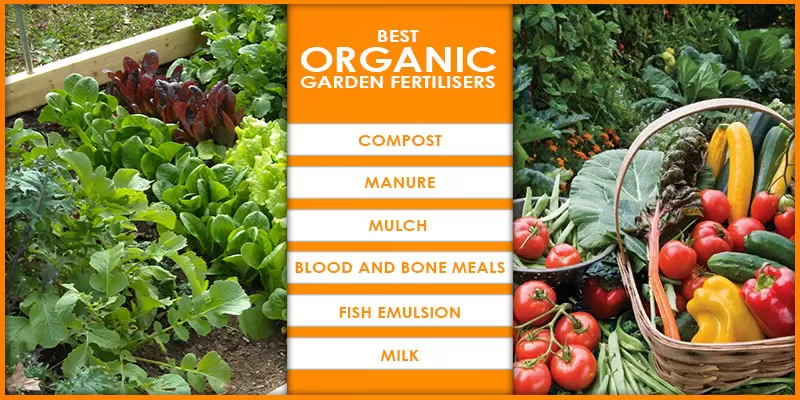A good fertilizer is the secret to any successful garden and organic fertilizer holds many more benefits than its traditional peers. Organic variants are often cost-effective, easy to find or source and, perhaps most importantly, offer sustainable, green ways to enhance your gardening prowess. Furthermore, it’s free of harmful pesticides and chemicals found in traditional fertilizers. Know the Best Organic Garden Fertilizers here.
Here are some of the best organic garden fertilizers available to you and your garden.
Compost
Compost is one of the easiest ways to help your crops grow and it’s also one of the easiest things to make. Organic waste is full of nutrients that plants love, making it an ideal compost resource. Do you have leftover vegetable skins, coffee ground remains or egg shells? All of these can be put into a compost bin and, with a little time, turned into a healthy, nutrient rich compost plants will love! As an added bonus, this cuts down on your waste, helping you to stay greener and save money.
Manure
Manure is very similar to compost, in that it takes left over food and uses the nutritious values within. Specifically, manure can take the waste from herbivores such as cattle and sheep, turning it into a substance very similar to compost. If you own an animal, such as a rabbit, this is always useful, while it’s never too hard to find someone willing to let you take their waste for them, either! In addition to the various ingredients, manure can improve the water retention in your soil, making it a highly useful component.
Mulch
Expert gardeners never leave their soil exposed and, for this reason, mulch is always useful. Soil needs to be protected from the elements, otherwise it will lose its nitrogen, phosphorous and other much-needed ingredients. Mulch comes in many variants, from simple lawn clippings and leaves to wood chips and bark shavings, meaning there are a variety of ways to source it. Even using your own grass cuttings makes a simple mulch that can protect soil, increase water retention and improve the health of your plants. Mulch can also keep your soil warm and, perhaps even more importantly, stop weeds from growing!
Blood and bone meals
When you need to increase the amount of protein in your soil, bone and blood meals make very useful additives. These are ground from bone and blood respectively, sourced from slaughter-houses. This makes for a cheap product that is easy to find, thanks to its constantly replenishing source. One of the main benefits of these meals is that they have a slow release, meaning the fertilizer will release its nutrients slowly, for maximum effect.
Fish emulsion
Fish have always been used as source of vitamins throughout life and, even when it comes to gardening, the likes of cuttlefish bones have used as a form of bone meal. Similarly, you can also buy emulsion, made from grinding down fish. It may not be the most pleasant – odor-free versions are available – but it gives plants plenty of vitamins. It also contains vital nutrients, such as phosphorus, potassium and a high amount of nitrogen.
Milk
As a cheap source of fertilizer when you need it, raw or unpasteurized milk is a quick fix for giving your garden a dose of calcium. For the best results, it’s always recommended that you blend the milk with equal parts water, to create a consistency that agrees with your soil and plants. As a liquid based fertilizer, milk can also be sprayed. If you have a large area of ground to cover, or want to water the plants in your home or greenhouse too, why not add a little milk to the mix?

